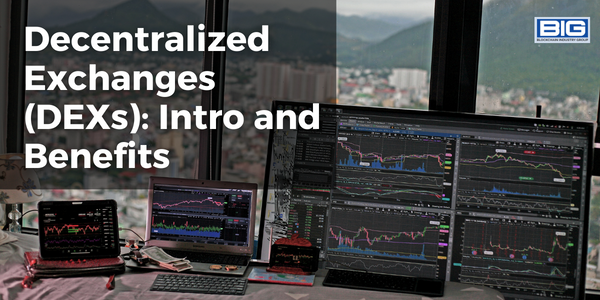
A decentralized exchange, or DEX, is a platform that allows users to buy and sell cryptocurrencies without the need for a centralized authority. This type of exchange operates on a decentralized network, using smart contracts to facilitate transactions and ensure the integrity of the marketplace.
One of the key benefits of using a DEX is the increased security it offers. Because DEXs are decentralized and operate on a blockchain, they are not subject to the same vulnerabilities as centralized exchanges, which can be targeted by hackers. This can give users greater peace of mind when it comes to the safety of their assets.
In addition to increased security, DEXs also offer users greater control over their assets. Because users are able to hold their own private keys and retain full control of their assets, they do not have to rely on a third party to facilitate their trades. This can be particularly appealing for those who value privacy and autonomy in their financial affairs.
Another benefit of DEXs is the potential for lower fees. Because DEXs do not have the overhead costs associated with maintaining a centralized platform, they may be able to offer lower fees to users. This can be particularly appealing for traders who are looking to minimize their costs.
While DEXs do have their benefits, it is important to note that they may not be suitable for everyone. Because DEXs are relatively new and still developing, they may not have the same level of liquidity or user-friendly interfaces as centralized exchanges. This can make them less accessible to some users.
Here are a few examples of popular DEXs:
- Uniswap: Uniswap is a decentralized exchange that allows users to trade Ethereum-based tokens. It uses a unique liquidity pool model, where users can provide liquidity to the exchange in exchange for a share of the trading fees.
- 0x: 0x is a decentralized exchange protocol that allows users to trade a variety of Ethereum-based tokens. It utilizes a system of “relayers” who act as intermediaries to facilitate trades, allowing for greater liquidity and faster transaction speeds.
- Kyber Network: Kyber Network is a decentralized exchange that allows users to trade a wide range of cryptocurrencies, including both Ethereum-based tokens and non-Ethereum-based assets. It utilizes a system of “reserves” to provide liquidity and facilitate trades.
- Bancor: Bancor is a decentralized exchange that allows users to trade a variety of Ethereum-based tokens. It uses a unique automated market maker model to provide liquidity and facilitate trades.
- AirSwap: AirSwap is a decentralized exchange that allows users to trade Ethereum-based tokens using a peer-to-peer model. It utilizes a system of “indexers” to facilitate trades and provide liquidity.
Overall, DEXs offer a promising alternative to centralized exchanges, with increased security, greater control over assets, and the potential for lower fees. As the market for decentralized exchanges continues to grow, we may see them become more widely adopted, especially as regulatory frameworks for cryptocurrencies continue to develop.
Intro to Real-World Blockchain Applications
—
Introduction: Blockchain Gas and Transaction Fees
—
Key Features and Benefits of Block Chain
One important thing to note is that DEXs are not without their own set of risks. Because they are decentralized, they may not have the same level of liquidity as centralized exchanges, which can make it more difficult to buy or sell large amounts of assets quickly. Additionally, DEXs may be more vulnerable to attacks from hackers or other malicious actors, as there is no centralized point of control to protect against such threats.
Despite these risks, many people see the benefits of DEXs as outweighing the potential drawbacks. As the technology behind DEXs continues to improve, it is likely that they will become an increasingly important part of the cryptocurrency landscape.



